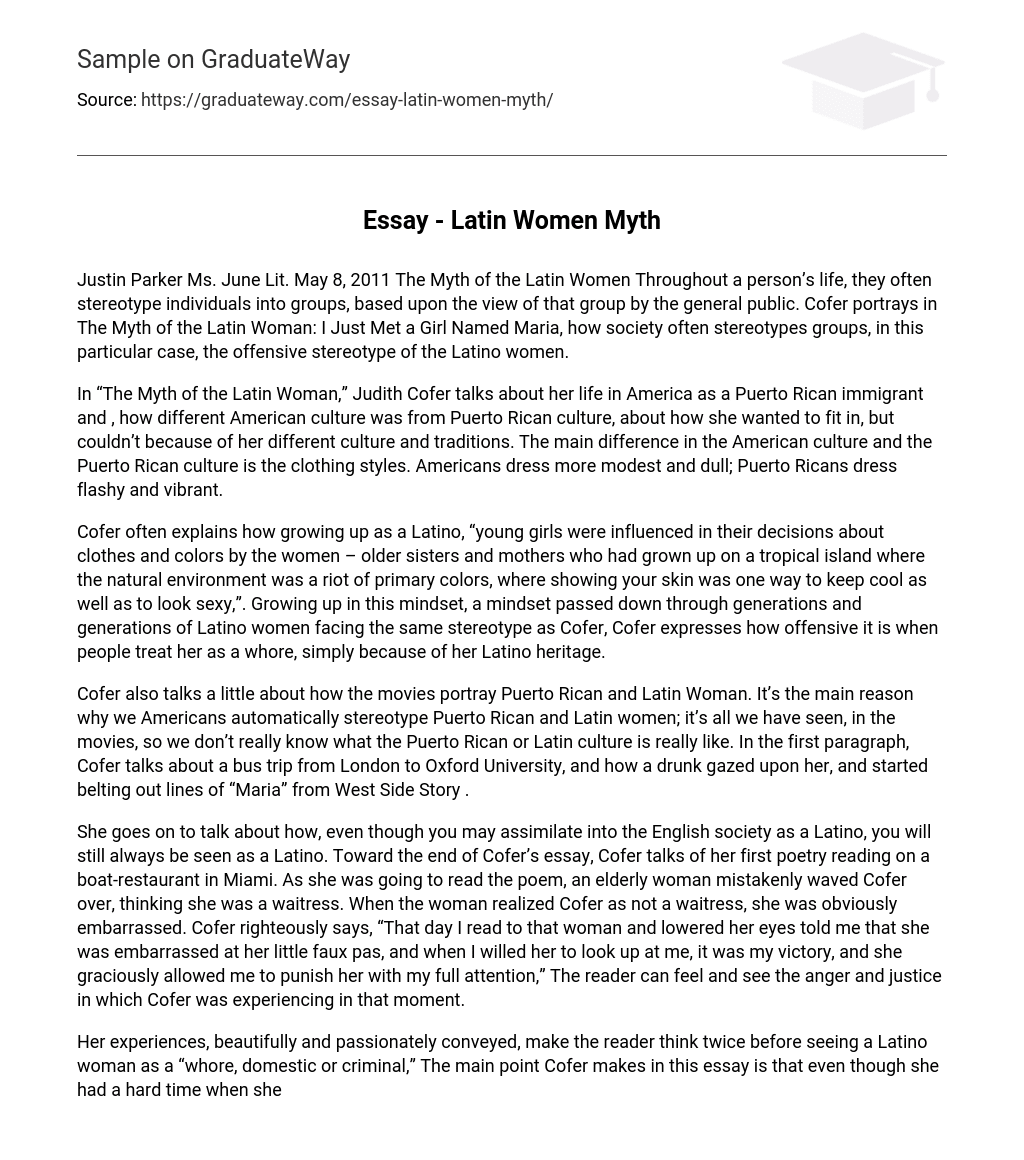The Myth of the Latin Women Throughout a person’s life, they often stereotype individuals into groups, based upon the view of that group by the general public. Cofer portrays in The Myth of the Latin Woman: I Just Met a Girl Named Maria, how society often stereotypes groups, in this particular case, the offensive stereotype of the Latino women.
In “The Myth of the Latin Woman,” Judith Cofer talks about her life in America as a Puerto Rican immigrant and , how different American culture was from Puerto Rican culture, about how she wanted to fit in, but couldn’t because of her different culture and traditions. The main difference in the American culture and the Puerto Rican culture is the clothing styles. Americans dress more modest and dull; Puerto Ricans dress flashy and vibrant.
Cofer often explains how growing up as a Latino, “young girls were influenced in their decisions about clothes and colors by the women – older sisters and mothers who had grown up on a tropical island where the natural environment was a riot of primary colors, where showing your skin was one way to keep cool as well as to look sexy,”. Growing up in this mindset, a mindset passed down through generations and generations of Latino women facing the same stereotype as Cofer, Cofer expresses how offensive it is when people treat her as a whore, simply because of her Latino heritage.
Cofer also talks a little about how the movies portray Puerto Rican and Latin Woman. It’s the main reason why we Americans automatically stereotype Puerto Rican and Latin women; it’s all we have seen, in the movies, so we don’t really know what the Puerto Rican or Latin culture is really like. In the first paragraph, Cofer talks about a bus trip from London to Oxford University, and how a drunk gazed upon her, and started belting out lines of “Maria” from West Side Story .
She goes on to talk about how, even though you may assimilate into the English society as a Latino, you will still always be seen as a Latino. Toward the end of Cofer’s essay, Cofer talks of her first poetry reading on a boat-restaurant in Miami. As she was going to read the poem, an elderly woman mistakenly waved Cofer over, thinking she was a waitress. When the woman realized Cofer as not a waitress, she was obviously embarrassed.
Cofer righteously says, “That day I read to that woman and lowered her eyes told me that she was embarrassed at her little faux pas, and when I willed her to look up at me, it was my victory, and she graciously allowed me to punish her with my full attention,” The reader can feel and see the anger and justice in which Cofer was experiencing in that moment.
Her experiences, beautifully and passionately conveyed, make the reader think twice before seeing a Latino woman as a “whore, domestic or criminal,” The main point Cofer makes in this essay is that even though she had a hard time when she was growing up she still became successful and that any one can do the same. We just have to turn the entire negative into a positive and keep on living.





